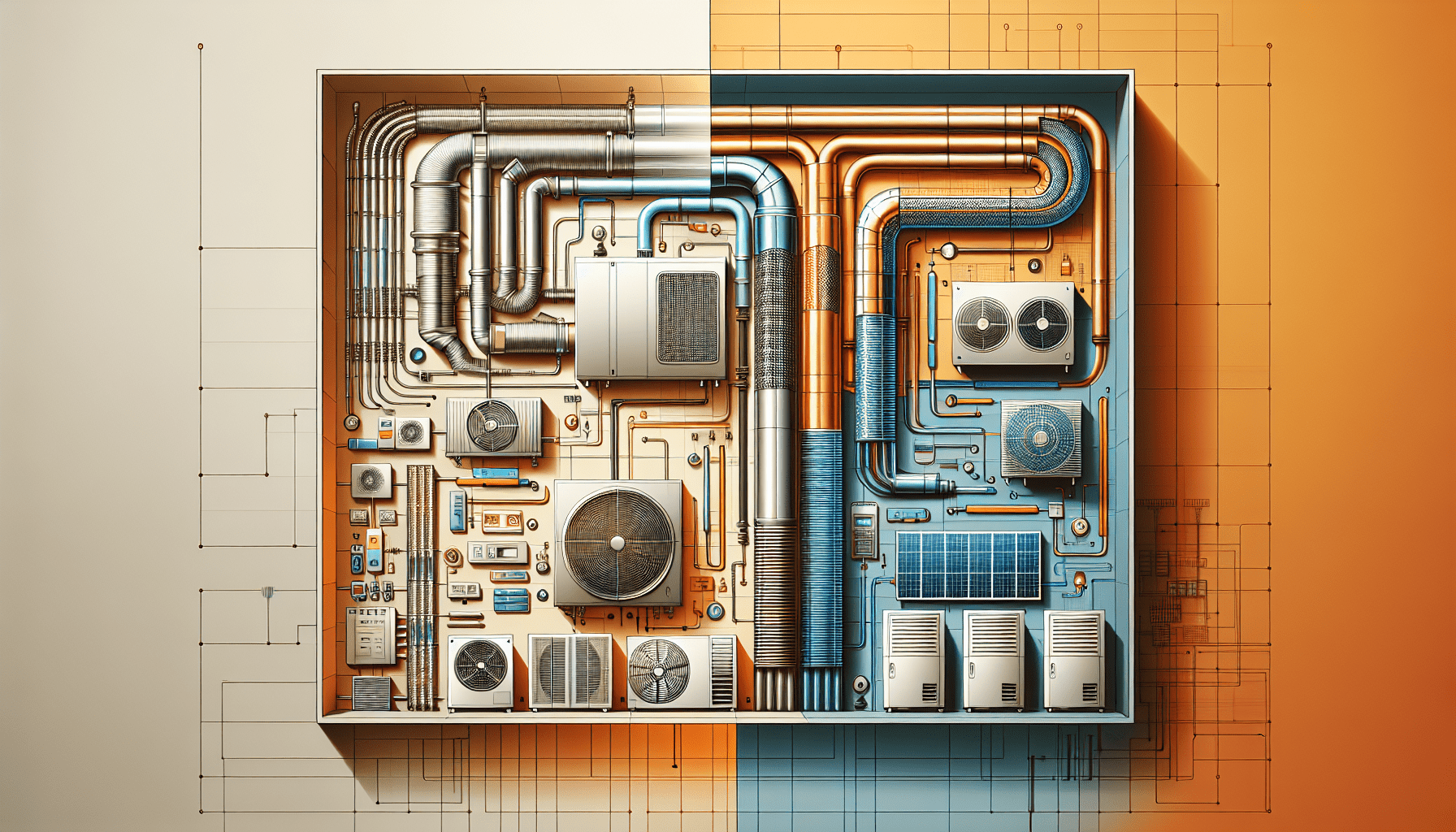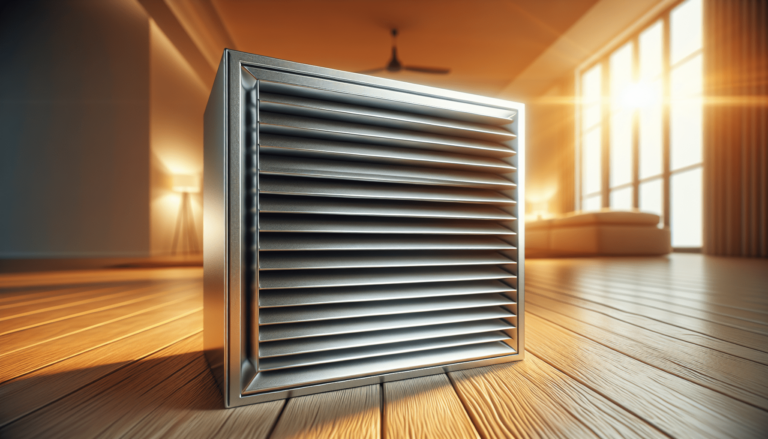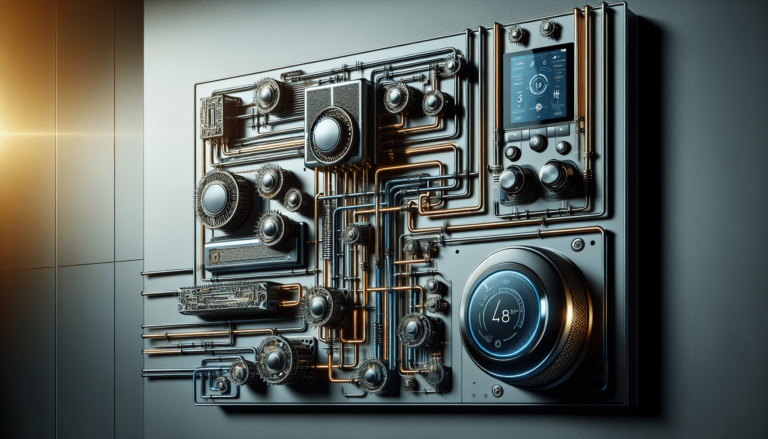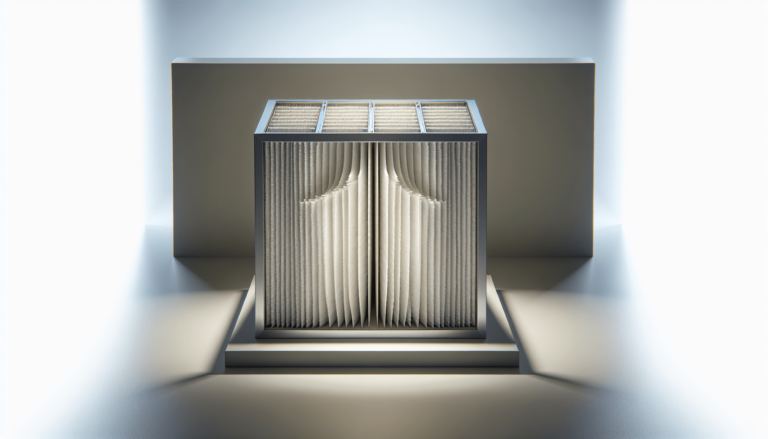

HVAC Services
Get Professional Repairs From The Area's Trusted HVAC Technicians. Ask About Our Services! We Offer Professional Heating & Cooling System Repairs And Guarantee Long-Lasting Results.
Got Question? Call us: (850) 678-2665Financing
Decentralized Vs. Centralized HVAC: What’s Best For You?
Discover the best HVAC for you with our humorous guide on Decentralized vs. Centralized systems. Weigh pros and cons, just like navigating a family reunion!

Have you ever thought about how the air conditioning in your space keeps you comfortable throughout the differing seasons? Understanding your options can play a big role in maintaining that comfort. The choice between decentralized and centralized HVAC systems can get a bit overwhelming. This guide will help you weigh the pros and cons of each system so you can make an informed choice.

What is a Centralized HVAC System?
A centralized HVAC system consists of one main unit that heats or cools air in one central location and then distributes it throughout your space. It’s like having a heart pumping blood through your body’s veins, except it’s pushing air through ducts. Think of it as the main character in the play, with all its supporting actors – your rooms – relying on the same performance.
Key Features of Centralized Systems
Centralized systems are known for several features:
-
Unified Control: You can control the temperature through a single thermostat.
-
Energy Efficiency: Newer models boast high energy efficiency ratings.
-
Quiet Operation: Because the main unit is often outside or in a basement, noise is minimized.
Benefits of Centralized Systems
The centralized approach offers several benefits:
-
Uniform Comfort: There is even temperature control across all areas.
-
Energy Efficiency: When properly maintained, these systems do not consume unnecessary energy.
-
Aesthetic Appeal: Since most components are hidden, your space stays clutter-free.
Drawbacks of Centralized Systems
Centralized systems are not without downsides:
-
Installation Cost: Initial installation can be expensive because of the ductwork.
-
Complex Maintenance: Repairing duct components can be complex and expensive.
-
Potential Energy Waste: If there are leaks in the ducts, energy can be wasted.
What is a Decentralized HVAC System?
Decentralized HVAC systems operate with multiple standalone units in different areas rather than one main system. Imagine each unit acting as an independent agent, all working towards keeping your surroundings comfortable. Each unit can be installed and controlled separately, providing tailored comfort in each zone.
Key Features of Decentralized Systems
These systems have unique features:
-
Flexible Control: Each unit has independent controls.
-
Less Ductwork: They function with little to no duct installation.
-
Easy Installation: Installation is often simpler and quicker than centralized systems.
Benefits of Decentralized Systems
Decentralized systems have distinct advantages:
-
Customized Comfort Levels: Different spaces can have different temperatures without conflict.
-
Simplified Installation: Less complex setups make installation easier.
-
Energy Savings: Using units only where needed saves energy, especially in less-frequented rooms.
Drawbacks of Decentralized Systems
There are also some downsides to consider:
-
Higher Operational Costs: Running several units simultaneously can increase energy bills.
-
Aesthetic Impact: Units may be visible in multiple locations.
-
Maintenance Challenges: Each unit requires separate maintenance and potential repair.
Comparing Centralized and Decentralized Systems
Understanding the core differences between these systems helps make an informed decision. Here is a table to illustrate these differences:
| Feature | Centralized System | Decentralized System |
|---|---|---|
| Control | Single thermostat control | Individual controls for each unit |
| Installation | Requires extensive ductwork | Minimal to no ductwork needed |
| Energy Usage | Can be very efficient; risks energy waste | Efficient in unused areas; higher with many units |
| Noise Level | Quiet operation | Varies; can be noisier per unit |
| Initial Cost | High due to ductwork and setup | Lower initial cost |
| Maintenance | Can be complex | Maintenance for each unit |
| Aesthetic Appearance | Mostly hidden components | Visible units in several areas |
Factors to Consider When Choosing Between Systems
Space and Layout
If your building is large and has multiple rooms, a centralized system might suit you best. For smaller buildings or individual rooms, a decentralized system can offer more precise control.
Budget and Installation Costs
Evaluate your initial budget. Centralized systems may cost more upfront due to installation requirements. If you have a tighter budget, decentralized units might be more appealing.
Energy Efficiency
Consider how often and where you use your HVAC system. A centralized system is ideal for spaces that need uniform heating or cooling. If certain areas are rarely used, a decentralized system can help save on energy costs.
Aesthetic Preferences
Your aesthetic preference will also play a role. Centralized systems keep components out of sight, whereas decentralized systems can be more visible or bulkier within individual rooms.
Maintenance and Longevity
Weigh your options for maintenance. Centralized systems might need fewer routine checks but can be costly when they do need repairs. Decentralized units require regular maintenance, but each unit is typically simpler to handle.

When to Opt for Centralized HVAC
A centralized system may be ideal if:
-
You desire uniform temperature control.
-
You have ample space for ductwork.
-
The aesthetic appeal of hidden components is a priority.
-
You want to enable full-home automation.
When to Opt for Decentralized HVAC
Choose a decentralized system if:
-
You need flexible temperature settings for different areas.
-
Initial setup costs are a concern.
-
Your building structure makes ductwork challenging.
-
Zone-specific control is more practical for your usage.
Potential Scenarios
Scenario One: A New Build
If you’re constructing a new home or office, consider a centralized system. The ductwork can be integrated seamlessly into the design. There’s more freedom to choose placements for units and vents without retrofitting challenges.
Scenario Two: Retrofitting an Older Building
Older structures can pose a problem for centralized systems due to their existing design. Decentralized systems offer adaptability without significant modifications. Install individual units as required without disrupting the building’s charm.
Conclusion
Deciding between decentralized and centralized HVAC systems is about balancing needs, preferences, and budgets. Consider what makes you and your space most comfortable. Our friends at Tempacure Heating and Air Conditioning can offer expert advice and services tailored to your specific needs.
Have more questions? Reach out to Tempacure:
Tempacure Heating and Air Conditioning
325 Cedar Ave S
Suite B
Niceville, FL 32578
(850) 678-2665
Tempacure’s Website
Making a decision might seem puzzling, but remember that comfort is personal. Choose the option that fits your life best.







